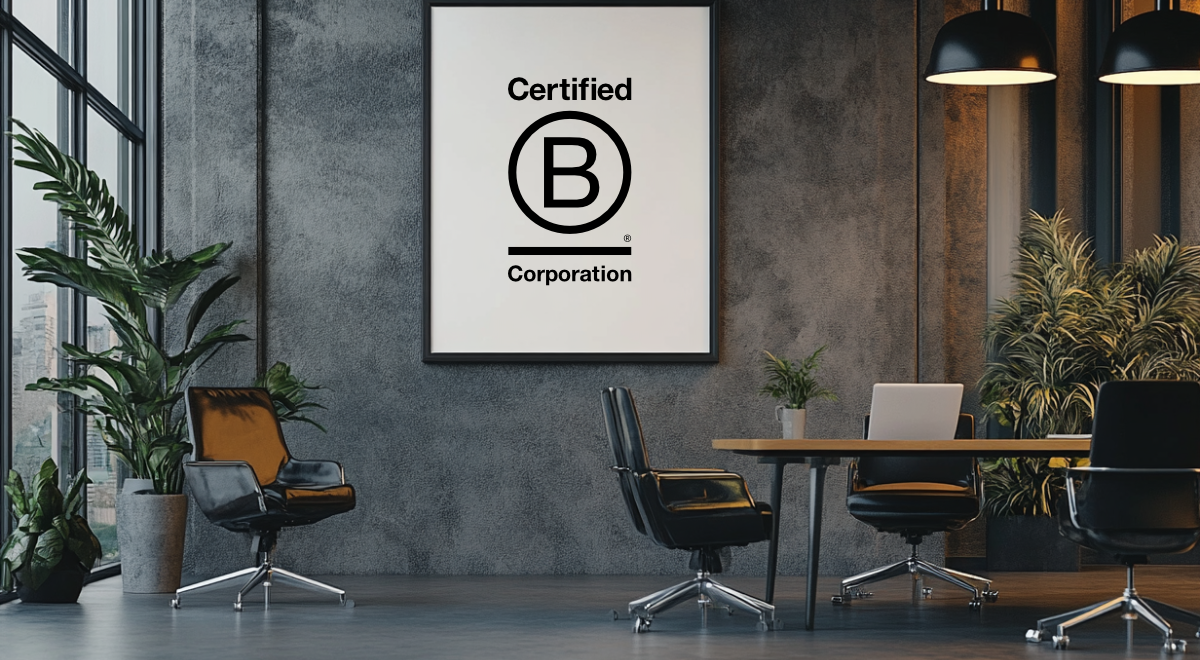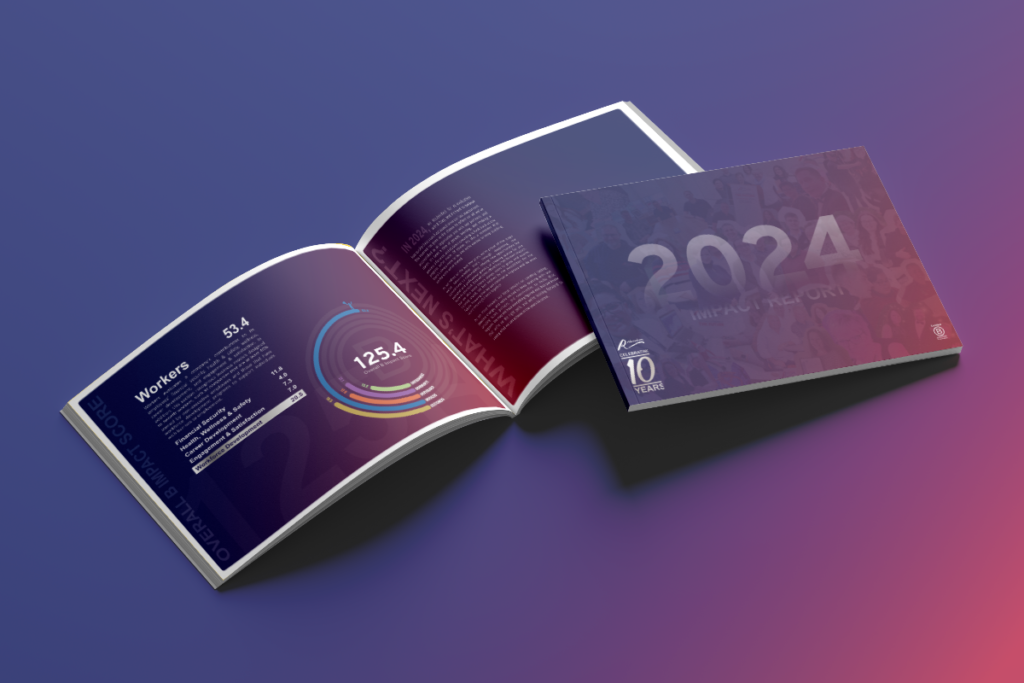
B Corp’s New Standards: What SMEs Need to Know
What’s New?
Why the Change?

What Do the Changes Mean in Practice?
With the new B Corp standards moving away from a points-based system and towards mandatory performance requirements in 7 impact areas, the way businesses report and communicate their impact is going to change too.
Under the current system, companies get an overall score (e.g. 86.4) that’s made public on the B Corp directory, along with a breakdown across five areas (Governance, Workers, Community, Environment, Customers). That score has been a quick way to compare B Corps and see where a company’s strengths lie.
Instead, under the new standards, B Lab is planning to phase out the overall point score entirely, rather focusing on how companies are addressing specific requirements across all seven Impact Topics and committing to ongoing continuous improvement. What this actually looks like, is not clear yet.
If you’re already a B Corp, your impact report will need to reflect the new structure, with a likely shift away from scorecards and towards storytelling with substance. You’ll still need to track impact; but the emphasis is on action, not just numbers.
Some Pros and Cons of the New Standard
PRO
Companies now have to meet minimum standards in all 7 impact areas, not just cherry-pick where they perform best. That means anyone who is certified has demonstrated well-rounded, credible action, not just a high score in one area and weak performance in another.
CON
Even though the new system levels the playing field, it could pose challenges for SMEs who have limited resources (both human and financial) to establish, monitor and report on all the tasks required to meet the requirements, especially in areas that would have been ‘lower-scoring’ at first certification.
PRO
Under the old system, it was possible to score highly in easy-to-win areas while working to improve performance in lower-scoring areas.
CON
Without a single score, it will be harder to compare B Corps at a glance; which was especially useful when choosing partners or suppliers.

Easier or Harder?
For SMEs, it’s a mixed bag. On one hand, the new structure is clearer and more aligned with modern sustainability challenges. You’ll know exactly what’s expected and can prepare accordingly. On the other, you might need to make changes in areas you hadn’t previously prioritised; like climate disclosure or formalising governance practices.
B Lab has committed to support SMEs through the transition, and the implementation timeline is generous: businesses won’t be assessed under the new standards until at least 2026.
Should You Still Go for B Corp?
B Corp is still a powerful tool. It can help build trust with customers, attract talent, and provide a clear path for continuous improvement.
By comparison to the previous standard it’s no longer a light lift (not sure it ever was). Companies looking to achieve B-certification should plan for an 18 to 24-month journey to get ready for certification. It’s not just about ticking boxes; it’s about building strong, sustainable practices across your business that will stand the test of time.
Final thoughts
For UK SMEs, the new B Corp standards raise the bar for responsible business, offering clearer expectations and greater transparency while presenting both challenges and opportunities. If you’re serious about running a business that stands the test of time, now is the moment to review your ESG efforts—not just for B Corp certification, but for the future of your organisation.
B Corp Impact Report 2024
As the business landscape continues to evolve, staying informed and proactive is essential. By embracing B Corp’s new standards, your business can not only meet higher benchmarks but also lead by example in sustainability, accountability, and positive impact.
Ready to take the next step?
If you’re seeking expert guidance or support with your ESG and B Corp strategy, contact our team today to learn how we can help you navigate the process and achieve your sustainability goals.
Contact Us01926 800710
Muneebah Kara
Risk, Compliance and Environmental Specialist, Risk Evolves








